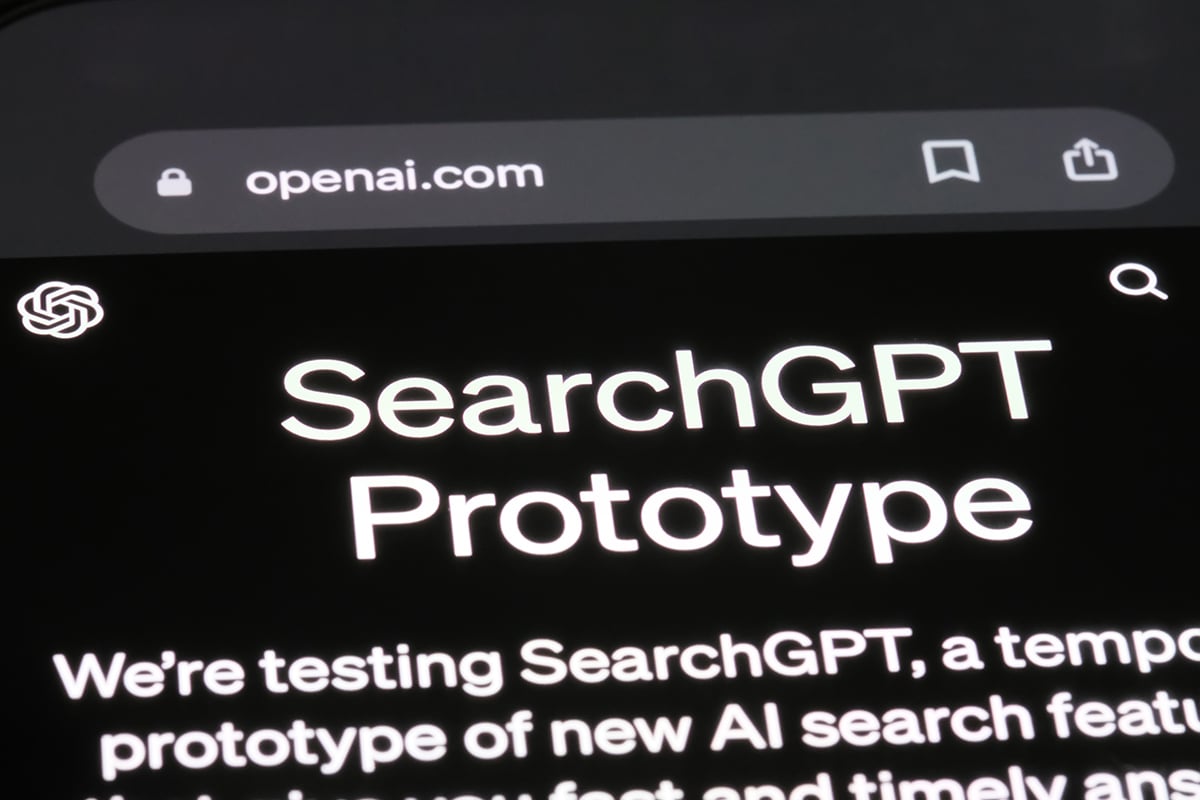In a bold move set to disrupt the search engine market, OpenAI has launched SearchGPT, an advanced AI-driven search engine poised to challenge the dominance of tech giants like Google and Microsoft. Unveiled on Thursday, SearchGPT leverages cutting-edge artificial intelligence to merge real-time web data with the conversational prowess of ChatGPT, offering a revolutionary search experience.
Transforming the Search Experience
SearchGPT allows users to query information using natural language, mirroring the interactive style of ChatGPT. This innovative approach simplifies and enhances the search process, offering a more intuitive experience. Unlike ChatGPT, which uses older data to formulate responses, SearchGPT provides current information, supplemented by clear and reliable sources from the web. This addresses a common frustration where users often need multiple searches to find accurate answers.
A New Contender in the AI Arena
With the introduction of SearchGPT, OpenAI directly competes with Google, the long-time leader in online search. Google’s attempts to integrate AI and chatbots into its search engine have seen mixed success. In May, Google introduced AI-generated summaries to augment search results, but the feature was quickly retracted due to inaccuracies and nonsensical outputs.
Microsoft’s Bing, another contender in the search engine sphere, has also integrated OpenAI’s technology to stay competitive. However, SearchGPT’s ability to deliver real-time, conversational search results may give OpenAI a significant advantage in the rapidly evolving AI landscape.
Demonstrations and Practical Use
A demonstration of SearchGPT showcased its ability to deliver detailed, practical information. For instance, when asked about the best tomatoes to grow in Minnesota, SearchGPT offered insights on various tomato varieties and linked to reputable gardening sites. This approach provides immediate answers and directs users to additional resources for further exploration.
Beyond direct answers, SearchGPT features a sidebar with supplementary links to relevant information, akin to the traditional ten blue links on Google Search results pages. This dual approach ensures comprehensive and accessible information delivery.
Navigating AI Integration Challenges
Integrating AI into search engines comes with challenges, particularly the risk of AI tools confidently presenting false information. OpenAI acknowledges this issue and stresses the importance of delivering accurate and trustworthy data. Despite these challenges, the potential of generative AI technology to revolutionize online search is immense.
OpenAI’s strategy includes partnering with publishers to ensure accurate representation of their content in SearchGPT results. Publishers can manage how their content appears, addressing concerns that AI-generated summaries might reduce web traffic to their sites. Notably, sites can feature in SearchGPT’s results even if they opt out of contributing data to train OpenAI’s AI models.
Shaping the Future of Online Search
SearchGPT has the potential to establish generative AI as the future of online search. By combining conversational capabilities with real-time web information, OpenAI aims to make searching for information faster and more efficient. This integration of real-time data signifies a major advancement in the AI arms race, influencing how users interact with information online.
As OpenAI continues to refine and test SearchGPT, the online search landscape is on the brink of transformation. With its innovative approach and competitive edge, SearchGPT could redefine how users seek and engage with information, challenging the traditional stronghold of search engines like Google and Bing.
SearchGPT by OpenAI marks a pivotal shift in online search technology, blending advanced AI with up-to-date web data to deliver a seamless and efficient search experience. This new tool not only poses a challenge to established tech giants but also paves the way for the future of generative AI in everyday use.







